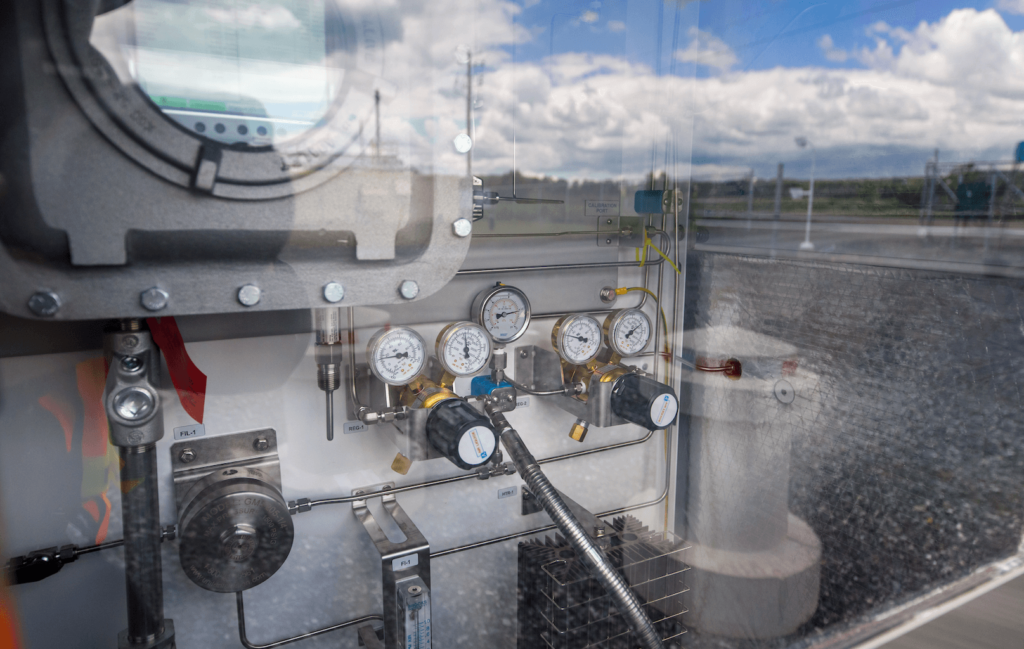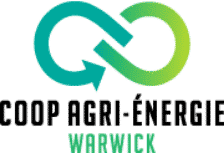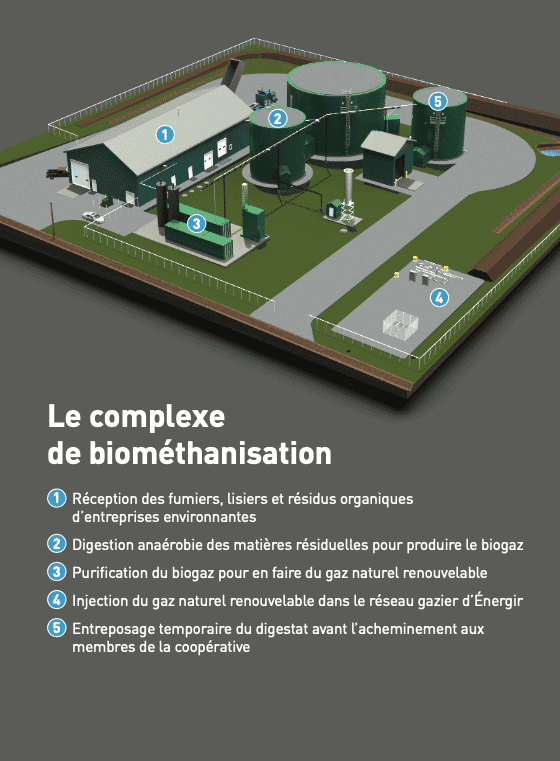
Coop Carbone develops, builds and operates cooperative agricultural biomethanisation projects for Quebec agricultural producers.
Agricultural biomethanisation allows the use of various residual organic waste, mainly agricultural (slurry) but also agri-food, municipal and industrial, to produce renewable natural gas.

Biomethanisation is a process for the valorisation of organic waste: manure, slurry, wastewater, landfill sites, contents of brown bins, etc.
Agricultural biomethanisation is a process for the valorisation of manure and slurry that is widespread in other parts of the world, particularly in Europe and the United States.
Biomethane, or renewable natural gas, is completely interchangeable with natural gas from fossil sources and does not require any adjustments to the equipment for its combustion.
The biomethanisation process transforms organic materials into digestate which can then be spread over agricultural land while reducing the smell associated with the spreading of raw organic materials.
CO2 is a by-product of biomethanisation; potential solutions are currently being developed to valorize it.

Initiated, developed and operated by Coop Carbone, the first cooperative agricultural biomethanisation project in Quebec was launched in the Warwick region, in Central Quebec.
Created in April 2019 with the support of Coop Carbone and the Coopérative de développement régional du Québec, the Coop Agri-Énergie Warwick is an agricultural cooperative with a dozen agricultural members and a cheese producer.

Early 2015, Coop Carbone launched the Agrocarbone approach with several partners from the municipal, governmental, financial, industrial and agricultural sectors. This approach aims to reduce GHGs in the agri-food sector through structuring and collaborative projects.
With the first Coop Agri-Énergie Warwick project, Coop Carbone was able to merge an entire ecosystem of collaboration and partnership in order to set up the first cooperative agricultural biomethanisation model in Quebec and Canada.
The agricultural cooperative model developed by Coop Carbone aims to create synergies between the agricultural world and the urban/industrial world. The model also includes the active participation of generators of organic waste from the agri-food, municipal and industrial sectors.
while diversifying and increasing their revenues.
related to agricultural operations.
by investing, as members, in a project of which they are owners and decision-makers.
while reducing odors associated with land application.
regionally and in a sustainable manner.
by contributing locally to the production of renewable energy.
based on the synergy between rural and urban actors.
Their residual organic waste regionally and in a sustainable way
Contribute locally to the production of renewable energy
Based on the synergy between rural and urban actors
We work with agricultural businesses, regional county municipalities (RCM), cities and other rural stakeholders. Here are some criteria to consider:

The attendance of interested agricultural businesses (animal production or field crops)

Regional willingness to support cooperative agricultural biomethanisation as a lever for economic development and an energy transition tool.

The attendance of businesses that generate organic waste (agri-food, municipal or industrial sludge).

Site of interest near the gas network (green or white zone).

Commitment to cooperative values and willingness to invest (down payment).